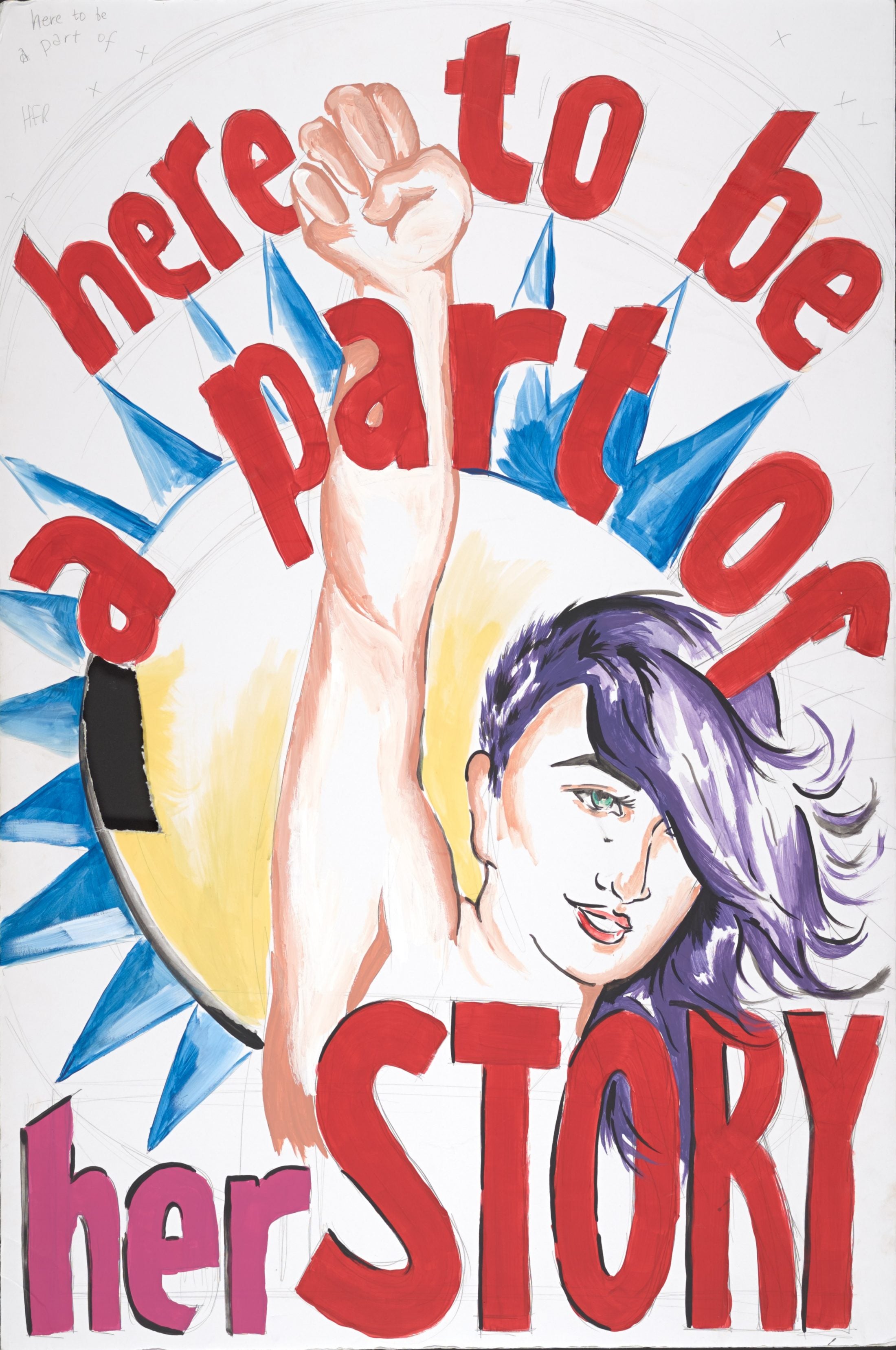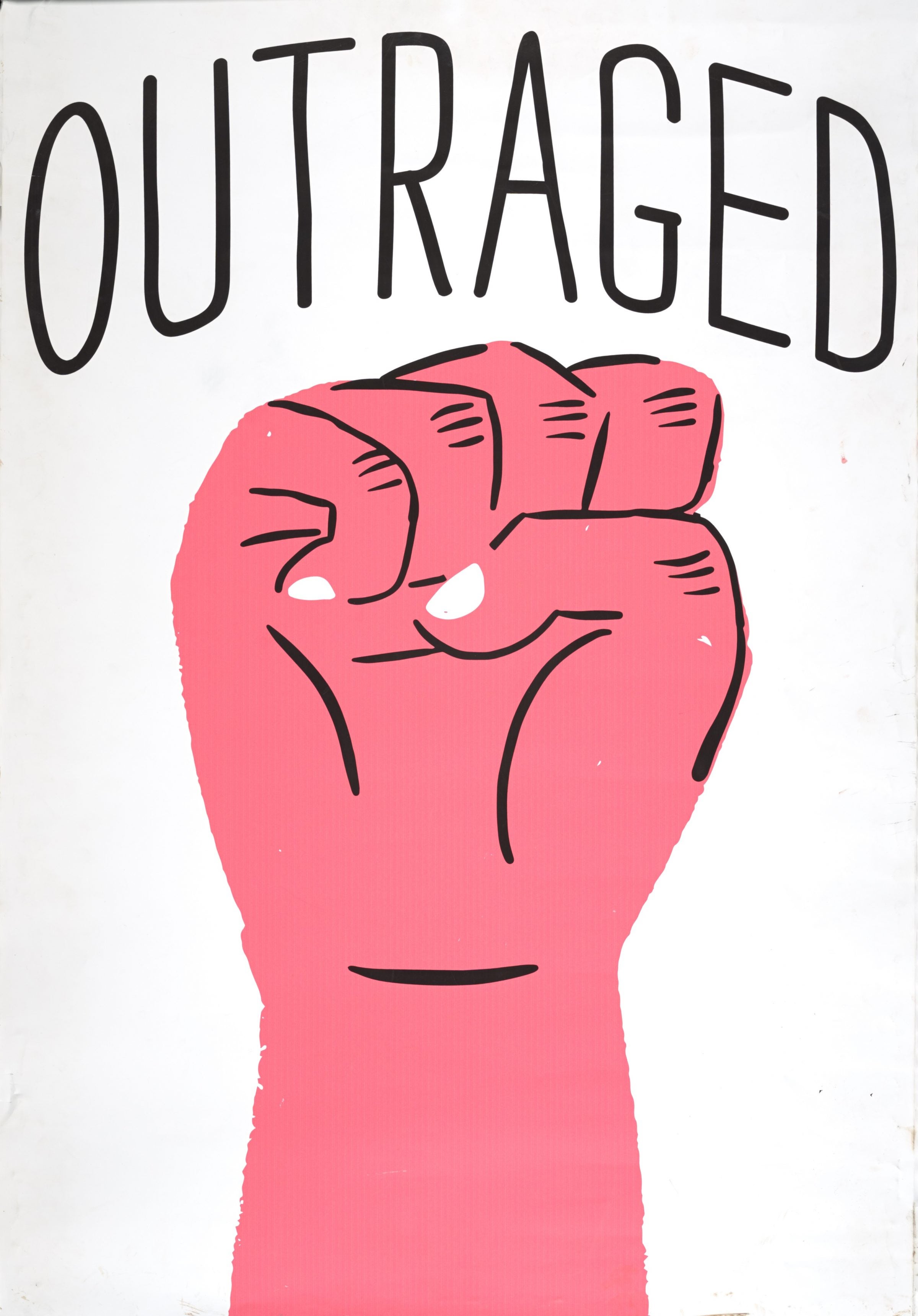Rutgers archivist collecting Women’s March signs and memorabilia
Rutgers University is collecting Women's March signs and memorabilia to document the feminism and grassroots activism of the historic movement.

Rutgers University archivist Stephanie Crawford collected signs last year from the Women’s March in Washington, D.C. She is asking anyone who participated in the second annual march last weekend to send her signs and ephemera for an archive the university will keep of march signs and memorabilia. (photo provided)
Talk about trash to treasure.
Last year, after millions of people hit the streets during the Women’s March to protest the inauguration of Donald Trump, one Rutgers University librarian ended her afternoon in Washington, D.C., collecting as many abandoned signs as she and a friend could comfortably carry.
“A lot of my items were picked from the garbage,” Stephanie Crawford said with a laugh. “I got a lot of strange looks from people as I was digging through and finding some good signs.”
The idea was to document the historic movement’s feminism and grassroots activism through the artistry and messaging marchers waved overhead as they protested.
With about 60 signs and other items in hand from last year’s D.C. and New York City marches, Crawford, a processing archivist for Rutgers’ Miriam Schapiro Archives on Women Artists, again is collecting signs, posters, and other marcher memorabilia from last weekend’s second annual march.
But instead of trash-picking, Crawford is asking marchers this year to send their stuff directly to her.
The items will become part of a “Women’s March Archive Project” in Rutgers’ Special Collections and University Archives, where students, researchers, and the public can see them. Eventually, they’ll also be publicly available online as part of an in-the-works website that will include marchers’ and speakers’ oral histories (collected by other archivists), photographs, and media coverage of the march.

Archivists especially want to show the diversity of marchers’ voices, Crawford said.
“When I went to the march in D.C., there were many different types of people, like eco-feminists, and Marxist and Communist feminists, anarchists, vegan feminists, there were brown and black feminists who were critiquing white feminism,” Crawford said. “There were pro-life feminists. There were people of many ages, toddlers to senior citizens. There were men and women.
“So to me, the point of the collection is trying to document as many diverse viewpoints as we possibly could and what they were saying, because I think that gives us a much broader snapshot of history than just saying: ‘White women in pussy hats were yelling.’ ”

Last year’s haul includes everything from a small patch embroidered with a goose and the word “Resist!” to pamphlets created by vegan activists. She also collected stickers from the Guerilla Girls, an anarchist/Communist newspaper, and many signs and posters bearing slogans like “Pussy Power!” and “Here to Make Herstory!”
The collection joins other unusual special collections at Rutgers that focus on things like New Jersey’s craft beer (Sinclair New Jersey Beer Collection) and local music (New Brunswick Music Scene Collection).

Authorities estimate well over a million people took to the streets last weekend for the second annual Women’s March, where they protested President Trump, pay disparity, sexual misconduct, and other issues. About 40,000 marched in Philadelphia.
To send march signs and ephemera to Rutgers, drop them off or mail them to: Special Collections and University Archives, Rutgers University, 169 College Ave., New Brunswick, NJ 08901. Donations may also be emailed to scua_ref@libraries.rutgers.edu (but call first at 848-932-7510 to fill out a donation form).
WHYY is your source for fact-based, in-depth journalism and information. As a nonprofit organization, we rely on financial support from readers like you. Please give today.




